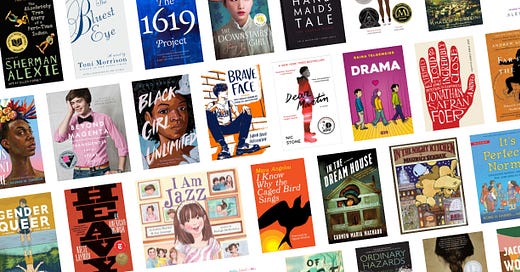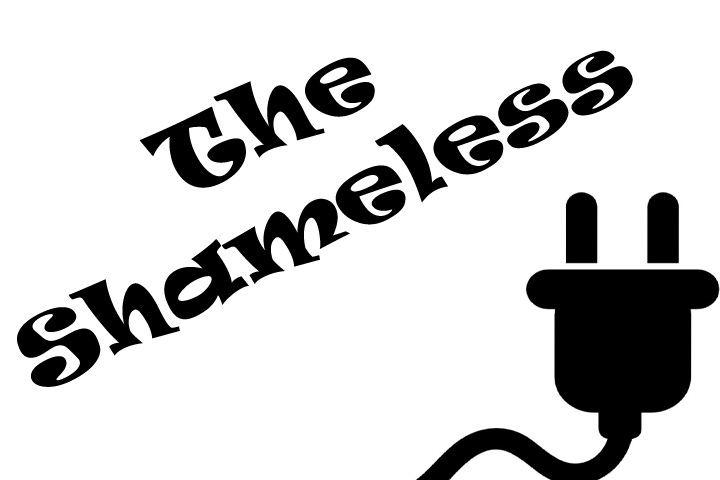Photo Credit: American Library Association
Issue #327 Education May 24, 2023
While Republicans and other MAGA people are busy banning books they don't like, the Dallas, Texas school district is distributing a new book that uses characters from "Winnie-the-Pooh" to teach children, some as young as 3 years old, how to react to an active shooter. The image of Winnie-the-Pooh moved into the public realm in 2022. The book is titled "Stay Safe" and subtitled "Run, Fight, Hide."
The act of banning books is not a new phenomenon, and neither is it unique to the United States. Book banning can be traced back to the colonial era, when books deemed immoral, obscene, or heretical were often censored or destroyed.
The first recorded instance of book banning in America was in 1651 when William Pynchon's book "The Meritorious Price of Our Redemption" was banned by the Massachusetts Bay Colony for its alleged heretical content.
Over the years, book banning has been motivated by various factors, including religious, political, and social reasons. Religion has been a significant factor in book banning, with books deemed blasphemous, anti-religious, or promoting alternative beliefs often facing censorship.
Political reasons for book banning have also been prevalent, with books deemed subversive or threatening to the status quo facing censorship. During the Cold War era, for instance, books deemed sympathetic to communist ideologies were often banned or censored.
Social reasons for book banning have also been common, with books deemed vulgar, obscene, or promoting immoral behavior often facing censorship.
Today, books promoting diversity and inclusion and books that are for and/or by LGBTQ+ or non-white people have also faced censorship in some conservative communities. Libraries and schools are common targets for book-banning efforts, with concerned parents or community members often petitioning for the removal of books deemed offensive.
Often it takes a complaint by just one person to have a book banned from an entire school or public library.
The types of books banned in America have been diverse, ranging from classic literature to children's books. Some of the most commonly banned books include "To Kill a Mockingbird" by Harper Lee, "The Catcher in the Rye" by J.D. Salinger, "The Adventures of Huckleberry Finn" by Mark Twain, and "Harry Potter" by J.K. Rowling.
Please make sure to view and act on the important information at the end of this article to help support “We Are Speaking.” Thank you!
In recent years, the rise of social media and online platforms has led to new forms of book banning, with cancel culture and online shaming leading to the removal of books deemed offensive or insensitive. While some argue that these efforts are necessary to promote inclusivity and diversity, others argue that they stifle free speech and limit access to important perspectives and ideas.
The reasons for banning these books have varied, with some deemed offensive due to their language or sexual content, while others have been deemed controversial due to their themes or social commentary. For instance, "To Kill a Mockingbird" has faced numerous challenges due to its portrayal of racism, while "Harry Potter" has been accused of promoting witchcraft and the occult.
In the past few years, far-right people's attempts to ban books have led to actual violence against teachers and librarians, and many public libraries have been defunded, including in Michigan and Missouri, causing them to close entirely.
Teachers and administrators are being targeted, investigated, fired, and threatened with the loss of their teaching licenses.
Despite efforts to ban books, millions of Americans continue to read and access banned books through various means, including the Internet, book clubs, and underground libraries. The American Library Association has been a vocal advocate against book banning, promoting intellectual freedom and the right to access diverse perspectives and ideas.
Recently, PEN America and Penguin Random House, along with a group of authors and parents, filed a lawsuit against the Escambia County School District and school board in Florida, claiming that the removal or restriction of certain books from school libraries violates the First Amendment and the equal protection clause of the Constitution.
The organizations argue that book banning disproportionately affects authors belonging to marginalized communities, including LGBTQA+ people and people of color.
The lawsuit is part of a larger trend seeking to rescind book-banning efforts in schools and libraries across the US, which have faced significant opposition from advocates of intellectual freedom and diverse perspectives.
Let us know your thoughts about book banning today in the Substack Notes feature.
You can always leave any questions in the comments or email us.
This article is free to access for 7 days after publication. Please consider becoming a paid subscriber for $5/month or less to access all of the articles and other benefits.
This is your chance to support everything Keith and Pam do. We appreciate you!
Purchase and download your copy of the “Branding And Marketing For The Rest Of Us” eBook for Independent Authors and Creative and Solo Professionals and other valuable eBooks.
Enroll in one of the 6-course bundles designed especially for you: “Author and Book Marketing” and/or “Essential Creative Marketing.”
Purchase your copies of “Detroit Stories Quarterly” issues.
What else do Keith and Pam do?
Where else can you find us?
Click the link below to learn everything you need to know and review everything we offer for independent writers and creative and solo professionals.








